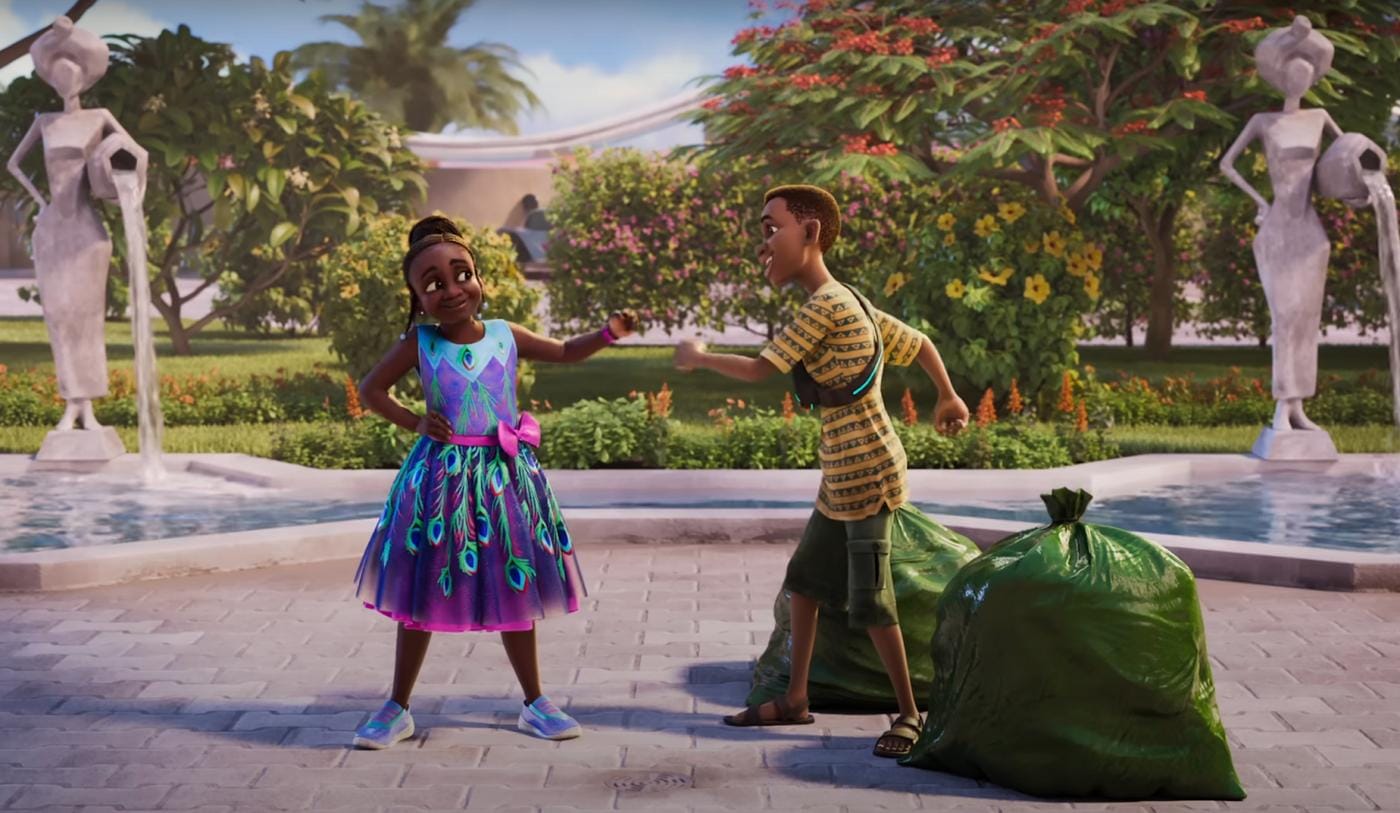‘Iwaju, ‘ the animation of Nigerian Series on the future of Lagos as imagined, first of its kind
With the arrival of ‘Iwájú,’ is Nollywood finally ready to turn its gaze on animations?

The project is directed by Olufikayo “Ziki” Adeola and produced in partnership with his animation studio, Kugali Media.
While animation has been a global phenomenon, and part of the film industry for centuries, that format of visual storytelling has been slow to grow in Nollywood.
But with the rise of tech and the fleet of Twitter bios with “graphic designer,” “3D designer,” “3D illustrator,” and “animator” planted in them, the conversation around animation as a format for feature-length Nollywood content has received new life.
Just last year, Disney rolled out Kizazi Moto, a 10-part series set in sci-fi versions of major African cities for its streaming platform Disney Plus. This year, it is rolling out Iwájú, also a sci-fi series, set primarily in Lagos, one of the biggest animation projects about the region. The project is directed by Olufikayo “Ziki” Adeola and produced in partnership with his animation studio, Kugali Media.
Though a Hollywood product with global marketing campaigns, the move signals a new era for animation content set in Nigeria and coming out of Nigeria.
“You can say it’s prime time,” Adeoyin Okuboyejo, who runs Taeps, the Lagos-based animation studio behind the animated short film ĘwA (beans) said of the shift. “Afrobeats has put us on the map and Africans globally, want to see more of themselves onscreen and global audiences want new and unique content,” he added.
The creativity of animation allows filmmakers to imagine worlds and bring said worlds to life in a way that would have otherwise been impossible for a live-action project. A huge component of the production process is done digitally. Ideally, this is supposed to be a plus. But funding deficit for engine experts from the conceptualisation to execution stage remains a huge setback for the industry.
“Anyone who loves animation will know that they are costly and take a lot of time,” Daniel Orubo, the director of the animated short Hanky Panky said. He noted that the habit of the industry to pursue quick profits will hardly thrive in this very nascent format. “Nollywood tends to invest in things that they will make their money and I understand that,” he added.
But there remains an even more powerful force pulling the industry backwards. Culturally, many Nigerians still believe that animation is a format primarily for children.
“There is a world where somebody makes an animation film that Nigerians connect with. But I do hear a lot of Nigerians say that animations are for children,” Orubo said. “If we’re trying to get like a typical commercial hit that will bring young and old to the cinemas, I’m not sure that animation is the place where we will do that,” he added.
But Okuboyejo, the filmmaker who runs the studio that made ĘwA, sees the game-changing with the right funding for projects.
“There is a gap in funding in the market for animation whereas it actually has the chance to be more successful globally,” he said. He added that if the right film comes by, Nigerians will jump at it, either in the cinemas or on streaming. “Nigerians want to see our culture accurately told in any stories that reflect us,” he said.
For these animation projects to be successful, the industry also needs a distribution platform that will accommodate them with fair deals that are good for producers, the channels, and the infrastructure that creates said channels for distribution. “As with any product, it has to be very well produced, marketed, and distributed via the right channels,” Okuboyejo said.
So far, YouTube has presented itself as a tool for these early works. Both Hanky Panky and ĘwA were released on YouTube. But the platform is challenging to monetise. For the industry to grow, other distributors including terrestrial TV channels that take the bulk of TV watchers will need to lean in to help.
With the arrival of ‘Iwájú’ is Nollywood ready to turn its gaze on animations?
Though this is a new era for Nollywood generally with the arrivals of the big streamers in the region, animation is still very nascent. Because of this, Orubo cautions that nothing has changed in animation yet even though it may seem so. Funding for projects is still low, platforms for distribution are still apprehensive and the audience still sees it as a format for children. Iwájú, he said, is simply “Disney money.” “It’s because it’s Disney and they brought Disney money,” he said.
And so in all of this sluggishness, for the animation section of Nollywood to grow, the fingers point back to one thing –– Nollywood itself. “We’re just not there yet,” Orubo said. In the meantime, success for these filmmakers is animation lovers saying they love the few projects that make their way to their screens.
